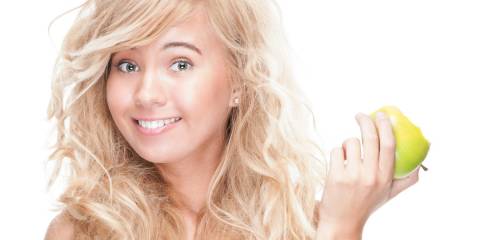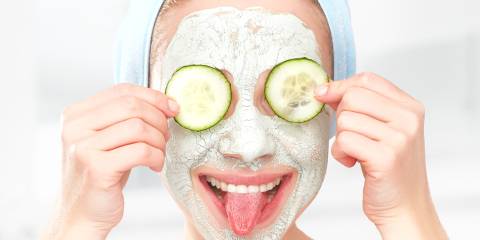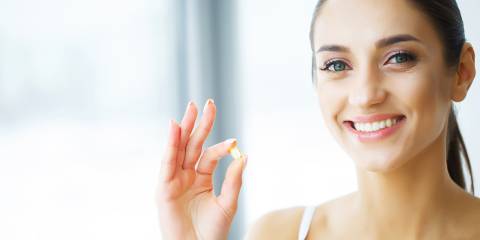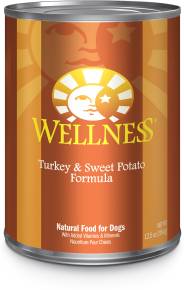What Causes Acne?
Acne affects over 85% of teenagers. They occur when pores, which drain the oil producing glands in the skin, get blocked. This plug forms whiteheads (if under the skin) or blackheads (if the plug is visible). When the pore gets blocked, it may get infected by skin bacteria, causing the red, inflamed pustular acne.
Acne usually begins along with the increased sex hormone production that accompanies puberty (e.g., DHEA, estrogen and testosterone). These hormones increase the production of skin oils (sebum) and the glands that make them, causing the acne to flare.
High sugar and carbs in the diet can stimulate increased levels of these hormones and increase acne formation. In addition, scratching or irritating a pimple causes it to get inflamed.
Prevention
People who live in non-industrialized countries with a healthy unprocessed diet simply don’t get zits — until they move to the U.S. or Europe!
General Diet Advice
-
Avoid sugar and high carbohydrate foods
-
A high protein and low sugar diet decreases acne by half after 12 weeks. The good news— chocolate has been shown not to cause acne.
-
Avoid milk and cheese products: Avoid for 6-10 weeks. This helps in some cases. If it helps after 6 weeks, cut back on milk products.
Treatment
It can take 6 weeks to see the benefits of acne treatments.
Supplements
- Vitamin A 2,000-4,000 units/day helps dry the skin. Caution: Over 4,000 units a day is bad for bone development (if used long term); over 8,000 units a day can cause birth defects; and over 25,000 units a day can cause liver problems—so higher doses should only be used with the guidance of a health practitioner (beta carotene is OK but does not help the acne). Vitamin A skin creams are safe (e.g., Retin A).
- Zinc 15-30 mg/day increases the effectiveness of the vitamin A and speeds skin healing.
- Fish oil is helpful in those with moderate to severe acne, but actually worsens mild acne. Use a supplement that only has the omega 3 you need without the oil.
- If constipated (less than a daily bowel movement) add fiber to your diet (e.g., vegetables, whole grain cereal low in sugar for breakfast).
- Chromium, 200-400 mcg/day (optional).
- Vitamin B6, 50-100 mg/day (optional).
- Drinking aloe vera juice 4-8 oz a day helps skin healing.
Vitamins A and B6, zinc, and chromium can be found combined in a good multivitamin (see Multi-Nutrient Powders).
Other Treatments
-
For Drying Skin
Topical vitamin A creams (such as Retin A by prescription) or Benzoyl peroxide (over the counter). Both are OK.
-
To Kill Skin Bacteria
Topical antibiotics are very reasonable. Antibiotics by mouth, though sometimes needed, are a bad idea for long term use. A natural alternative to topical antibiotics (or used along with them) would be “Tea Tree” oil 5%.





